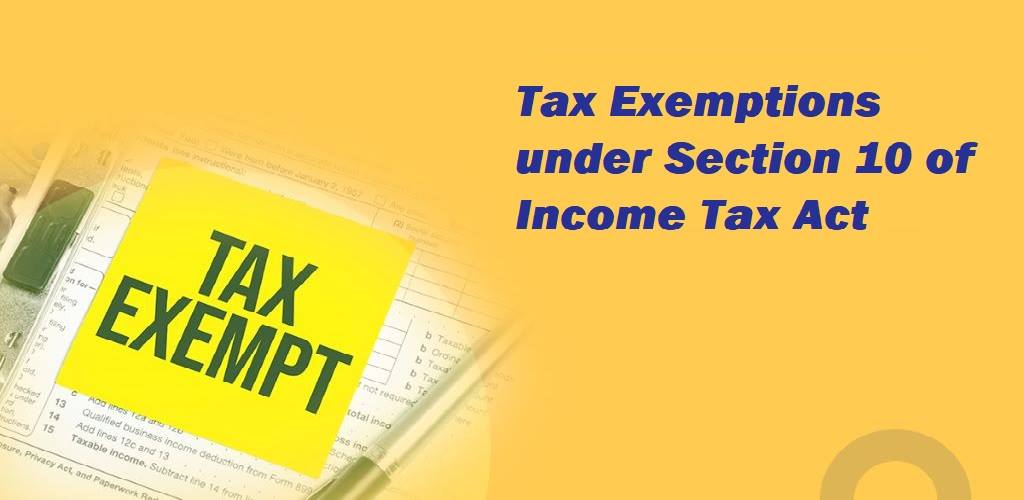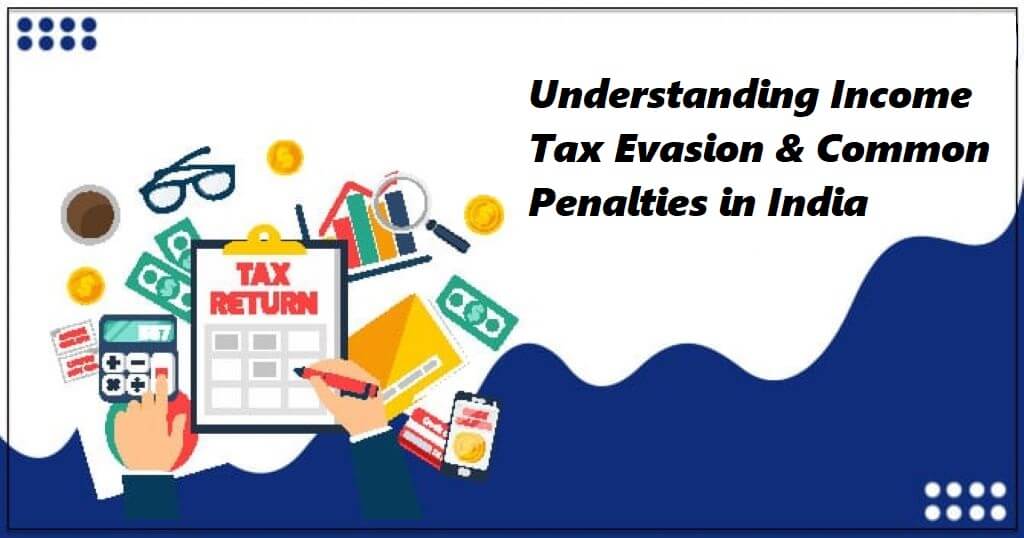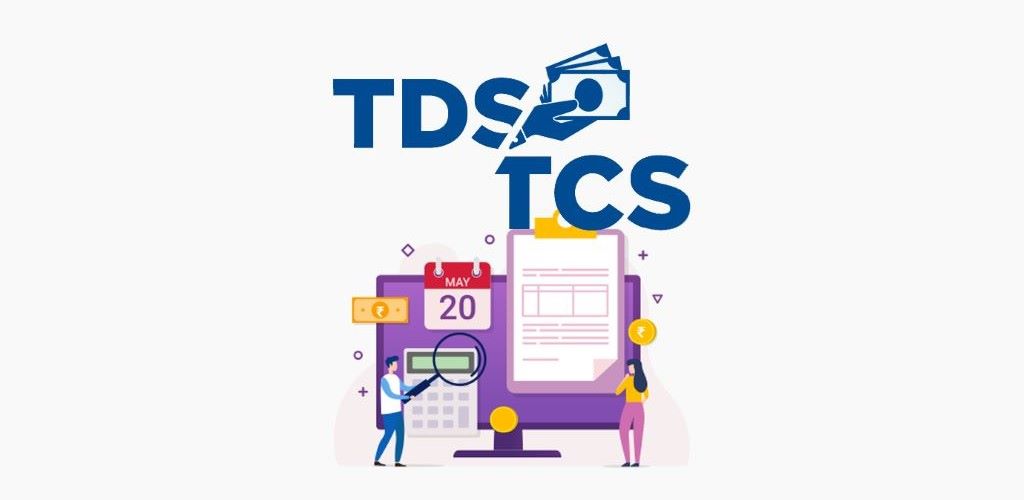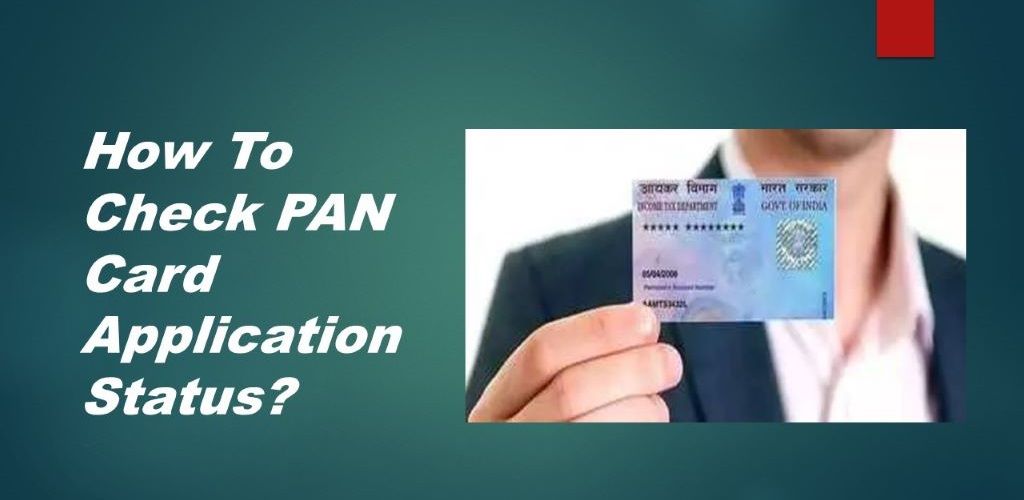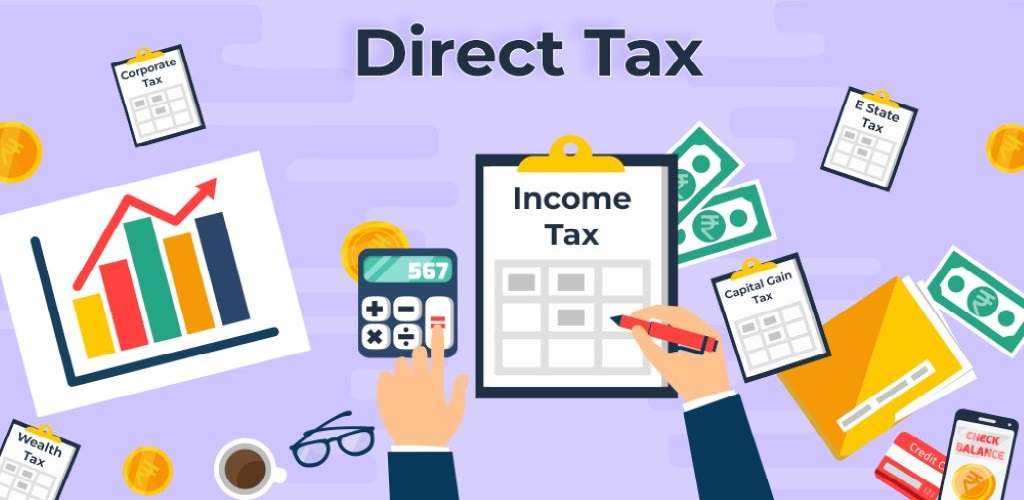No matter what kind of job you’re in, if you’re earning above a certain bracket, then paying taxes on time is a duty for every taxpayer in India. However, many people hope for ways to reduce their financial load through tax exemptions. To assist with this, the Indian Government offers certain tax exemptions under Section 10 of the Income Tax Act.
Section 10 of the Income Tax Act outlines various types of income that are not subject to taxes, which helps lower the amount of tax individuals need to pay.
If you are curious about what Section 10 is and what kinds of exemptions it includes, this article will provide the information you need.
What is Section 10 of Income Tax?
To put it simply, Section 10 of the Income Tax Act provides relief to salaried professionals by ensuring certain types of income are excluded from the total taxable income. This section is specifically designed to reduce the overall tax burden on individuals, thereby encouraging various beneficial activities and income categories.
One of Section 10’s primary benefits is the house rent allowance (HRA), which allows individuals to claim exemptions on the amount they spend on rent. This is particularly beneficial for those living in rented accommodations, as it reduces the amount of their salary that is subject to tax.
This section helps individuals increase their take-home pay and improve their financial well-being, which makes it easier for them to manage their finances and plan for the future.
What are the Features of Section 10 Exemptions?
The following table showcases the list of investment options available under the section 80C. This means that if you choose to invest in any of the following plans, you will be eligible for tax benefits under the section.
Here is a list of the key features included under the Section 10 Exemptions.
- Comprehensive Coverage
One of the biggest features and benefits of Section 10D exemption is that it offers extensive tax exemptions that cover various sources of income. It includes the sum assured, any bonuses received, and maturity proceeds. This comprehensive coverage ensures that multiple types of income are considered, providing significant tax relief when calculating income tax.
- Protection Across Life Stages
Another major advantage of Section 10 act is that it provides consistent tax exemption from the initial investment phase through to the maturity or surrender of the policy. This ensures that policyholders receive financial protection and peace of mind throughout their life journey, knowing that their tax liabilities are minimized at every stage.
- Income from Reinvestment
The third benefit of the Section 10 Act is that if a policyholder reinvests the maturity proceeds in another life insurance policy, the income generated from such reinvestment remains tax-free under Section 10D. This feature ensures that policyholders can continue to benefit from tax exemptions, promoting prudent financial planning and maximizing tax benefits over time.
What are Exemptions Under Section 10?
Listed below are the exemptions under Section 10. Let’s take a look at them one by one.
- Section 10(1))
This rule says that Hindu Undivided Families (HUFs) or individuals don’t have to pay taxes on money they make from farming. But remember, it’s only for money directly made from farming, not from things like selling dairy or poultry products.
- Section 10(2))
Members of a Hindu Undivided Family don’t have to pay taxes on money they get from the family’s income or an impartible estate.
- Section 10(2A))
Partners in a partnership or limited liability partnership (LLP) don’t have to pay taxes on the profits they earn from the partnership. However, this exemption doesn’t cover other types of income, such as interest or salary.
- Sections 10(4), 10(4B), 10(4C), and 10(4D))
Non-residents don’t have to pay taxes on certain interest earnings from government securities, savings certificates, rupee-denominated bonds issued outside India, and specific investment funds.
- Section 10(4E)
Income from non-deliverable forward contracts with offshore banking units in International Financial Services Centres (IFSCs) is tax-exempt, but only for that specific type of contract.
- Section 10(4F)
Non-residents leasing aircraft or ships to IFSC units don’t pay taxes on the royalty income, but this exemption only applies to royalties, not other income from leasing.
- Section 10(4G)
Non-residents investing in portfolios managed by portfolio managers in IFSCs don’t pay taxes on the income, but only if it’s from accounts in those IFSCs and not deemed to have come from India.
- Section 10(4H)
Non-residents or IFSC units don’t pay taxes on shares transferred from domestic companies engaged in aircraft leasing in IFSCs, provided certain conditions are met.
- Section 10(5)
Employees get a tax exemption for Leave Travel Concession (LTC) from their employer to encourage them to travel within India. The LTC applies to employees and their families and covers travel expenses within India by air, rail, or road, limited to the actual amount spent.
- Section 10(6)
Non-Indian citizen employees of foreign embassies in India don’t pay tax on their salary as long as Indian officials in those countries get the same treatment.
- Sections 10(6)(vi) & 10(6)(viii)
Under certain conditions, the salaries of foreign employees working temporarily in India or on foreign ships for less than 90 days a year are tax-exempt.
- Section 10(6)(xi)
Foreign trainees in Indian government-owned or financed establishments get tax-exempt remuneration during their training in India.
- Sections 10(6)(A), 10(6)(B), and 10(6)(BB)
Tax paid by the Indian government on behalf of foreign companies or entities earning income from various sources is exempt from tax for those foreign entities.
- Section 10(6)(C)
Certain foreign companies earning income from royalty or technical services are exempt from tax in India.
- Section 10(6)(D)
Income from providing services to NTRO (National Technical Research Organisation) by non-residents is tax-exempt in India.
- Section 10(7)
Allowances or perks given to Indian government employees working outside India are tax-exempt.
- Section 10(8)
Direct or indirect payments to individuals from foreign governments for cooperative technical assistance programs are tax-exempt in India.
- Sections 10(8A) & 10(8B)
- Income earned by a consultant under a technical assistance agreement and income accruing outside India is tax-exempt.
- Similarly, consultants’ employees who do not reside or ordinarily reside in India can also get this exemption.
- Section 10(9)
Family members of employees under cooperative technical assistance programs earning outside India are tax-exempt.
- Sections 10(10)(i), 10(10)(ii), and 10(10)(iii)
Gratuity received by government employees or those covered under the Gratuity Act, of 1972, is tax-exempt, subject to certain limits.
- Section 10(10A)
Commuted pensions received by government employees are tax-exempt.
- Section 10(10)(AA)
Leave encashment received by government employees is tax-exempt, subject to certain conditions.
- Section 10(10B)
Money received at the time of retrenchment is tax-exempt, with specific limits.
- Section 10(10BB)
Compensation given to Bhopal gas leak victims is tax-exempt.
- Section 10(10BC)
Compensation received by disaster victims or their legal heirs from the government is tax-exempt.
- Section 10(10C)
Money received on voluntary retirement or termination, up to INR 5 lakh, by government employees is tax-exempt.
- Section 10(10CC)
Value of perquisites is taxable for employees, but tax paid by the employer on non-monetary perquisites is exempt for employees.
- Section 10(10D)
- Proceeds from a life insurance policy are tax-exempt under certain conditions.
- Provident Fund Exemptions:
- Section 10(11): Payment from the Statutory Provident Fund, including interest and lump sum amounts at termination, is exempt.
- Section 10(12): Payment from Recognised Provident Fund is exempt, with certain conditions on interest rates and lump sum amounts at termination.
- Section 10(11A)
Payments from a Sukanya Samriddhi Account are tax-exempt, including interest and withdrawals.
- Sections 10(12A) and 10(12B)
- 40% or 60% of the total amount payable on closing or opting out of NPS is exempt from tax.
- Partial withdrawal from National Pension Trust, up to 25% of total contributions, is tax-exempt.
- Section 10(13)
Employer’s contribution up to 1,50,000 is tax-exempt, with exemptions for various payments from the fund.
- Section 10(13A)
HRA received by salaried employees is tax-exempt, limited to the minimum of actual HRA received, actual rent paid minus 10% of salary, or a percentage of salary based on city type.
- Section 10(14)
Certain allowances, such as travel, daily, helper, uniform, and children’s education, are exempt from tax, subject to conditions and limitations.
- Section 10(15)
Various interest incomes are exempt from tax under different subsections.
- Section 10(15A)
Lease rent of aircraft or aircraft engines paid to foreign entities by Indian companies in the aircraft operation business is not taxable.
- Section 10(16)
Amounts received as educational scholarships are tax-exempt.
- Sections 10(17) and 10(17A)
- Daily allowances and other expenditures received by MPs or MLAs are exempt.
- Awards in the public interest or rewards from the Central or State government are also exempt.
- Sections 10(18) and 10(19)
Pension received by gallantry award recipients and family pensions of armed forces members are exempt.
- Section 10(19A)
The annual value of one palace owned by a former ruler is exempt from tax.
- Section 10(20)
Exemption for income from house property, capital gains, supply of goods/services, and utilities like electricity or water.
- Section 10(21)
Exemption, if income supports core objectives and funds, are invested as per regulations.
- Section 10(22B)
Exempt income for news agencies (not applicable from Assessment Year 2024-25).
- Section 10(23A)
Exemption for associations supervising professions like law, engineering, etc., if income is used for primary objectives and approved by the Central government.
- Section 10(23AA)
Exempt income for public funds established by the armed forces.
- Section 10(23AAA)
Exemption for funds meant for employee welfare.
- Section 10(23AAB)
Exempt income for pension funds approved by insurance authorities.
- Section 10(23B)
Exemption for charities supporting village and khadi industries.
- Section 10(23BB)
Exempt income for Khadi and Village Industries Board.
- Section 10(23BBB)
Exemption for interest, dividends, or capital gains derived from investments in India.
- Section 10(23BBC)
Exempt income for SAARC fund for regional projects.
- Section 10(23BBD)
Exempt earnings for certain years.
- Section 10(23BBE)
Exemption for earnings of IRDAI.
- Section 10(23BBG)
Exempt income for the Central Electricity Regulatory Commission.
- Section 10(23BBH)
Exemption for earnings of Prasar Bharati.
- Section 10(23C)
Exemption for income received by certain educational and medical institutions meeting specific criteria and charitable purposes.
- Income of Mutual Funds and Securitization Trusts
Income from registered mutual funds or securitization trusts is exempt (Section 10(23D) and Section 10(23DA)).
- Exemption for Certain Funds and Trusts
Various funds and trusts, such as investor protection funds, credit guarantee funds, and venture capital funds, enjoy exemptions (Sections 10(23EA), 10(23EB), 10(23EC), 10(23ED), 10(23EE), 10(23FB), 10(23FBA), 10(23FBC), 10(23FC), 10(23FCA), 10(23FE), and 10(23FF)).
- Exemptions for Certain Scheduled Tribes and Other Categories
Income exemptions for Scheduled Tribes, Sikkimese individuals, and others in specific areas (Sections 10(26), 10(26AAA), and 10(26AAB)).
- Exemptions for Various Boards and Corporations
Income exemptions for various boards, corporations, and statutory bodies (Sections 10(29A), 10(30), 10(32), 10(33), 10(34A), 10(34B), 10(35), 10(37), 10(37A), 10(38), and 10(39)).
- Exemptions for Loans, Reverse Mortgage, and Pension Trusts
Loan transactions, reverse mortgages, and income from the New Pension System trust enjoy exemptions (Sections 10(40), 10(43), and 10(44)).
- Exemptions for Government Trusts and Bodies
Income of government trusts, non-profit bodies, and infrastructure debt funds are exempt (Sections 10(46), 10(47), and 10(48)).
- Exemptions for Foreign Companies and Financial Institutions
Income exemptions for foreign companies dealing with crude oil, infrastructure development, and licensed financial institutions (Sections 10(48), 10(48A), 10(48B), 10(48D), and 10(48E)).
- Exemption from Equalization Levy
Income from specified services or e-commerce is not subject to income tax (Section 10(49) and Section 10(50)).
Who can Claim Tax Exemptions Under Section 10D?
Here is a list of the categories of people who can claim tax exemptions under Section 10D.
- Below 60 years: Individuals below 60 years of age are eligible for a maximum tax exemption of Rs. 2.5 Lakhs per fiscal year under various categories mentioned in Section 10 of the Income Tax Act.
- 60 – 80 years: Individuals between 60 and 80 years of age have a slightly higher maximum tax exemption of Rs. 3 Lakhs per fiscal year under Section 10.
- Above 80 years: Under Section 10, individuals over 80 enjoy the highest maximum tax exemption of Rs. 5 Lakhs per fiscal year.
Is Leave Encashment Exempted From Income Tax?
The answer to this question lies in the fact that leave encashment by employees is subject to taxation under certain conditions. Here’s what you need to know.
- Government Employees: For government employees (State or Central), leave encashment received at the time of resignation or retirement is generally exempt from income tax.
- Private Sector Employees: For private sector employees, leave encashment is treated as part of “Income from Salary” and is taxable. However, exemptions are available under Section 10(10AA) of the Income Tax Act.
Frequently Asked Questions
Listed below are the frequently asked questions related to Section 10 of Income Tax.
No, only a part of the House Rent Allowance (HRA) is exempt from taxes under Section 10(13A) of the Income Tax Act. However, there are some limits and conditions to this exemption.
Yes, the money you receive when your Sukanya Samriddhi Account matures is completely tax-exempt, without any limit.
Yes, up to 60% of the amount received from the National Pension System (NPS) upon retirement or closing the account is tax-exempt. Also, 25% of the contribution made to NPS is exempt upon partial withdrawal.
To be eligible for exemptions under Section 10(10D), you need to have a life insurance policy. The amount received upon its maturity, along with any bonus, can be claimed as an exemption.
Yes, special allowances for salaried employees are taxable. These allowances, paid monthly, come in different forms and are subject to taxation.

